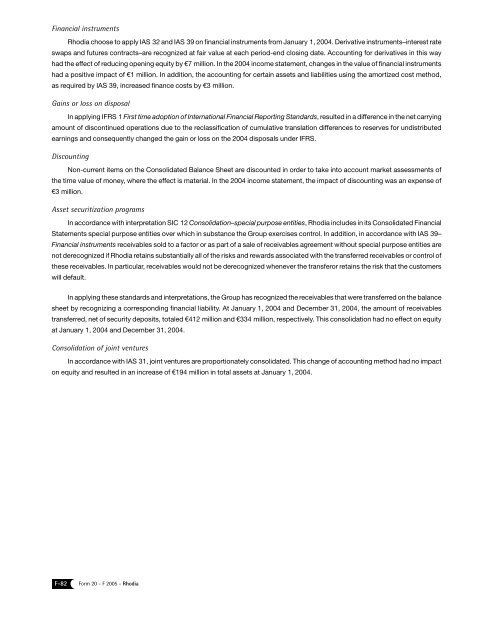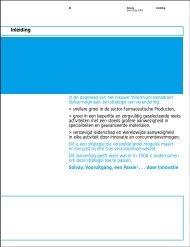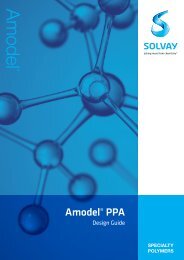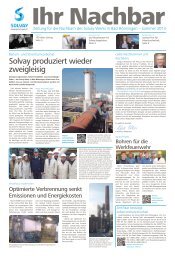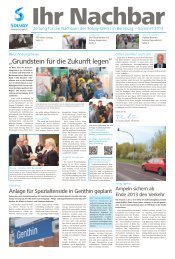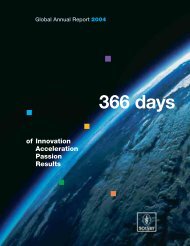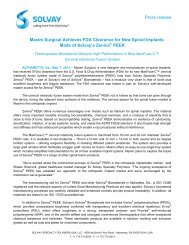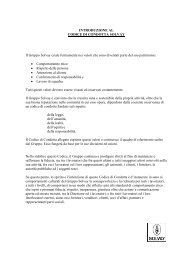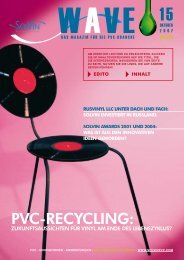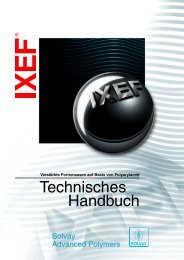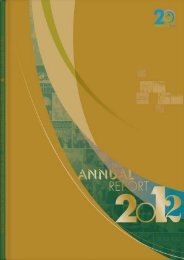Form 20-F 2005
Form 20-F 2005
Form 20-F 2005
You also want an ePaper? Increase the reach of your titles
YUMPU automatically turns print PDFs into web optimized ePapers that Google loves.
Financial instruments<br />
Rhodia choose to apply IAS 32 and IAS 39 on financial instruments from January 1, <strong>20</strong>04. Derivative instruments–interest rate<br />
swaps and futures contracts–are recognized at fair value at each period-end closing date. Accounting for derivatives in this way<br />
had the effect of reducing opening equity by €7 million. In the <strong>20</strong>04 income statement, changes in the value of financial instruments<br />
had a positive impact of €1 million. In addition, the accounting for certain assets and liabilities using the amortized cost method,<br />
as required by IAS 39, increased finance costs by €3 million.<br />
Gains or loss on disposal<br />
In applying IFRS 1 First time adoption of International Financial Reporting Standards, resulted in a difference in the net carrying<br />
amount of discontinued operations due to the reclassification of cumulative translation differences to reserves for undistributed<br />
earnings and consequently changed the gain or loss on the <strong>20</strong>04 disposals under IFRS.<br />
Discounting<br />
Non-current items on the Consolidated Balance Sheet are discounted in order to take into account market assessments of<br />
the time value of money, where the effect is material. In the <strong>20</strong>04 income statement, the impact of discounting was an expense of<br />
€3 million.<br />
Asset securitization programs<br />
In accordance with interpretation SIC 12 Consolidation–special purpose entities, Rhodia includes in its Consolidated Financial<br />
Statements special purpose entities over which in substance the Group exercises control. In addition, in accordance with IAS 39–<br />
Financial instruments receivables sold to a factor or as part of a sale of receivables agreement without special purpose entities are<br />
not derecognized if Rhodia retains substantially all of the risks and rewards associated with the transferred receivables or control of<br />
these receivables. In particular, receivables would not be derecognized whenever the transferor retains the risk that the customers<br />
will default.<br />
In applying these standards and interpretations, the Group has recognized the receivables that were transferred on the balance<br />
sheet by recognizing a corresponding financial liability. At January 1, <strong>20</strong>04 and December 31, <strong>20</strong>04, the amount of receivables<br />
transferred, net of security deposits, totaled €412 million and €334 million, respectively. This consolidation had no effect on equity<br />
at January 1, <strong>20</strong>04 and December 31, <strong>20</strong>04.<br />
Consolidation of joint ventures<br />
In accordance with IAS 31, joint ventures are proportionately consolidated. This change of accounting method had no impact<br />
on equity and resulted in an increase of €194 million in total assets at January 1, <strong>20</strong>04.<br />
F-82 <strong>Form</strong> <strong>20</strong> - F <strong>20</strong>05 - Rhodia


